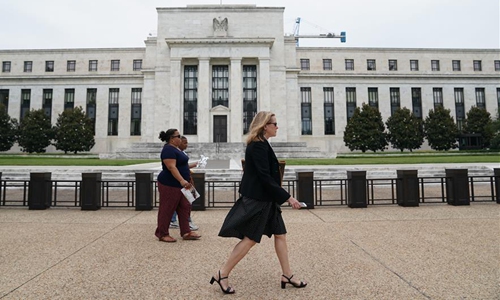The feared spread of COVID-19 has had a negative impact on the US economy, dimming the growth prospect of the world’s largest economy in the near term, US Federal Reserve (Fed) said in its latest Beige Book on Wednesday.
“There were indications that the coronavirus was negatively impacting travel and tourism in the U.S. Manufacturing activity expanded in most parts of the country,” the Fed said in the “Beige Book”.
The Beige Book is a periodic economic snapshot released by the Fed, containing economic report from 12 federal reserve districts, each of which was monitored by a regional Federal Reserve Bank.
As nationwide patient tally topped 100 in the United States and fear of the novel coronavirus continued to spread across the country, the impact on the supply chain was also reportedly emerging.
“Some supply chain delays were reported as a result of the coronavirus and several Districts said that producers feared further disruptions in the coming weeks,” the Beige Book stated.
In a surprise announcement on Wednesday, the Fed lowered the target range for the federal funds rate by 50 basis points to 1 to 1.25 percent, as the COVID-19 outbreak poses “evolving risks” to economic activity.
But Fed Chairman Jerome Powell said on Wednesday that the monetary easing would not ease supply chain worries. The helmsman of the central bank also warned the rate cut wouldn’t “fix a broken supply chain,” adding that the virus outbreak was “something that will require a multi-faceted response.”
Even though the Fed judged that U.S. economy continued to grow at “modest to moderate pace” over the past several weeks, the report said that the growth of the U.S. economy could be “modest” in the near term due to the impact of the coronavirus and the upcoming presidential election.
“Outlooks for the near-term were mostly for modest growth with the coronavirus and the upcoming presidential election cited as potential risks,” said the Beige Book.


